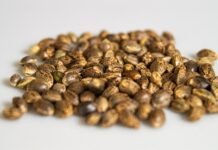Epilepsy is a debilitating medical condition that affects about 60 million people worldwide. The disorder mostly manifests in sudden, unprovoked, and recurrent seizures.
During epileptic episodes, the victim is usually unaware of what’s happening to them, as their nerves go into a complete state of inactivity. That means they can collapse and fall into a pool of water or a raging inferno.
So, even if a person with epilepsy is lucky to survive these episodes, they could sustain life-threatening wounds. Indeed, the bodies of many people with epilepsy are seared with scars reminiscent of some of their near-brushes with death.
Now, many incidences of epileptic seizures result from gene abnormality. However, the disease could also be caused by various environmental and therapeutic factors. For instance, people with Alzheimer’s disease and those who have suffered a brain injury or stroke, are more prone to epileptic seizures.
Antiepileptic prescriptions manage epileptic seizures. However, most of these drugs are infamous for leaving the victim nursing unpleasant side effects. Thankfully, you can always use all-natural herbal extracts like cannabidiol (CBD) to manage the condition.
What Is CBD and How Does It Fight Epileptic Seizures
Cannabidiol is one of the over 480 compounds in cannabis, which contains many of the plant’s therapeutic properties. CBD is often contrasted from another popular cannabis compound, tetrahydrocannabinol (THC), in that THC induces euphoria and intoxication, whereas CBD does not.

Although cannabidiol is mostly famous for its analgesic and anti-anxiety properties, it’s now emerging that administering high potency Sunday Scaries CBD or other CBD-based products might mediate epileptic seizures.
But just how does CBD help to manage epilepsy?
Cannabidiol improves the performance of the endocannabinoid system, a system that regulates our normal homeostasis. When you’re ailing from medical conditions, such as epileptic seizures, your endocannabinoid system registers the disease as an abnormality in the form of homeostatic imbalance. The system then embarks on a rigorous process of restoring the imbalance. In order to regulate normal homeostasis, the endocannabinoid system relies on endogenous cannabinoids known as endocannabinoid, and certain receptors spread throughout the body, known as endocannabinoid receptors.
CBD basically interferes with certain receptors’ chemical structure, increasing the efficiency with which your endocannabinoids bind to those receptors. This complex mechanism results in relief from various medical conditions, such as epileptic seizures.
Besides affecting the endocannabinoid system, CBD edibles are also a powerful antioxidant and come with immense cytotoxic benefits. The substance protects your neurons from invasion by toxins. Abnormally high levels of toxins in your neurons are one of the primary triggers of epileptic seizures. That’s especially true if the toxins affect your cranial nerves, where they could also trigger inflammation and tumor growth.
Numerous case reports from Canada revealed a significant reduction in tumor progression among children that smoked cannabis, exceptionally high CBD, and THC products. Due to its anti-tumor properties, cannabidiol can play a significant role in decelerating tumor growth in the brain. As a result, this can lower the risks of epileptic seizures.
CBD’s anti-seizure properties were also examined in this open-label trial involving patients aged 1 -30 years with severe forms of treatment-resistant epilepsy. The participants received stable doses of oral cannabidiol, ranging between 2 and 5 mg/kg per day.
The doses were increased gradually to a maximum of 25 or 50 mg/kg per day, or until a patient developed an intolerance to CBD.
At the end of the study, researchers noticed significant improvements among the participants. CBD proved to be effective even against some of the worst forms of epilepsy, such as Dravet syndrome and Lennox-Gastaut syndrome.
Other Ways CBD Might Help To Fight Epileptic Seizures
In addition to preventing epileptic seizures, cannabidiol can also relieve the following symptoms associated with the disease.
- Migraines
Frequent epileptic seizures might lead to continuous migraines. Fortunately, CBD’s powerful analgesic properties are useful in fighting migraines and other forms of seizure-induced pain.
As we’ve already highlighted, cannabidiol contains anti-inflammatory properties and might help fight migraines by reducing inflammation of the nerves or receptors located in the brain’s cranial region.
However, note that CBD, in itself, produces minimal effects on your brain. So, to relieve migraines, you’ll need to administer a full-spectrum CBD product. These products come with the therapeutic benefits of CBD, THC, and various other cannabinoids.
It’s the THC in full-spectrum products that produce anti-inflammatory effects in your brain. On its part, CBD modulates the effects of THC, ensuring that you don’t slip into a state of sedation or intoxication in the process of trying to treat migraines.
- Insomnia
Epileptic seizures can cause persistent migraines. The resultant pain, coupled with the constant fear of suffering more fits, might lead to insomnia.
However, the good news is that CBD can effectively treat insomnia and allow a person with epilepsy to pursue a balanced sleep/wake cycle. Besides treating pain, CBD also works against insomnia by relieving various anxiety disorders.
Other ways cannabidiol can treat insomnia include shortening sleep latency and eliminating or reducing REM sleep.
CBD is one of the most effective natural remedies against epileptic seizures. One of the top reasons medical researchers recommend CBD against conventional antiepileptic drugs is that CBD doesn’t cause severe side effects. Most users who experience side effects only report mild cases of nausea and drowsiness.


























